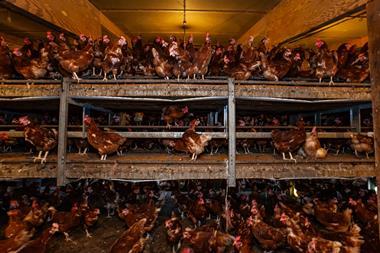
Some supermarkets are being expected to answer more than three million questions about the recyclability of products, under a controversial new traffic light system related to the government’s extended producer responsibility scheme, The Grocer has learned.
The huge data task – described as a “gigantic red tape nightmare” by one leading source – has caused uproar from retailers and manufacturers already angry about the cost of the EPR regulation and the possible impact on inflation.
Defra released details of its recyclability assessment methodology (RAM) over Christmas. From October 2026, large producers will be charged for all household packaging, depending on how easy it is to recycle, to reimburse local authorities for the cost of collection.
Under the RAM, products that are difficult to recycle at scale will be graded red, those with challenges amber, and those that are widely recyclable green. The rules will apply to any product that has gone on the market since 1 January this year.
But with the first reporting under the RAM due in October, and with many large companies having to field questions about hundreds of thousands of components within tens of thousands of SKUs, companies are urging Defra to simplify the methodology.
“The RAM is a hugely complex reporting obligation imposed on businesses requiring literally millions of questions to be answered across thousands of SKUs,” said one industry source.
“Developing the expertise, capacity, and systems to deal with these obligations, in such a short timeframe, places further administrative and cost burden onto business at a time when resources are already strapped.”
The Grocer understands Defra has told businesses it will now produce a new version of the RAM, which it hopes to have ready by the spring.
Defra has received complaints that the version that came out over Christmas was “rushed”, “inaccurate” and would require companies to commit huge resources to reporting.
The latest problems for EPR come with supermarket bosses calling for the government to postpone the rollout of the scheme, which will see the first payments due in October, although the “modulated” fees won’t kick in until the following year.
Last week, the FDF warned Defra it would withdraw support from the scheme unless it committed to various moves, including ringfencing the spending of money with cash-strapped authorities.



















No comments yet